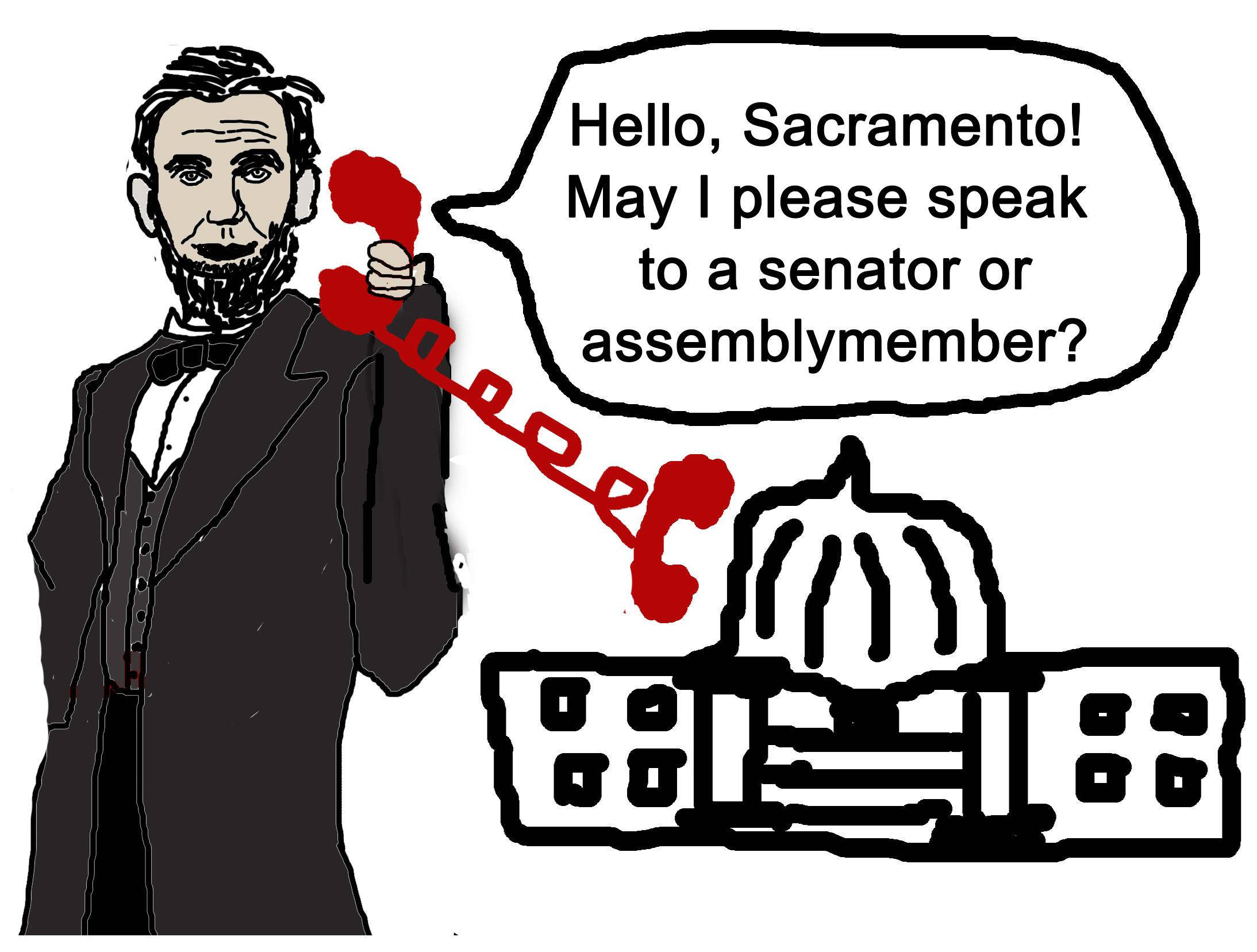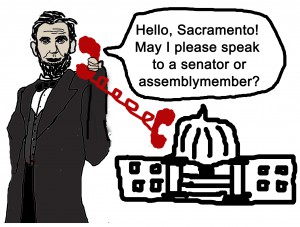

‘Tis the season to introduce legislation, so now is the time to plant a suggestion with California lawmakers to do a tune-up on the California Law Office Study Program (LOSP). A key goal of a tune-up is to enable a larger number of attorneys to mentor LOSP apprentices, to meet a growing demand for affordable and practice-based legal education.
Business & Professions Code Section 6060(e)(2)(B) allows people to become lawyers if they study “[i]n a law office in this state and under the personal supervision of a member of the State Bar of California who is, and for at least the last five years continuously has been, engaged in the active practice of law.”
At least 30,000 new California lawyers are ruled out as supervisors by the five year requirement, and that doesn’t even include thousands more experienced attorneys who have left jobs or been laid off during the recent economic downturn, thereby interrupting “continuous” practice. Rising tuition has put law school out of reach for many people, so it is time to make practice-based education more accessible to aspiring lawyers. We desperately need more lawyers to supervise apprentices.
Remove or Reduce the Five Year Practice Requirement
There’s a very good argument for reducing or eliminating the required five years of experience: Who better to teach the basic law curricula than someone who just finished learning it? I took on two apprentices as soon as I hit my five year mark, and I feel as if I’m now re-learning the bar exam topics from scratch. Things get rusty fast.
Let’s also acknowledge the irony of the five year requirement: It seems to imply that you should not become a lawyer unless you learn from someone who has significant practice experience. If that’s the case, law school would not be a pathway to becoming a lawyer.
Remove the “Continuous” Practice Requirement
We should also remove the requirement to practice “continuously,” given the reality of today’s job market and the fact that lawyers are also human beings. It’s just not that easy or even desirable to practice continuously for five years straight. A lawyer who is laid off or who takes maternity leave or medical leave will have the five year clock reset at zero. One volunteer lawyer at SELC was sworn in to practice California law in the mid-1980s, and she would love to mentor an apprentice in her current law practice. The problem? She recently returned from a year of living and doing non-legal work out of state. And another irony: If a lawyer takes time away from practice in order to teach in a law school, that lawyer also becomes ineligible to teach a LOSP apprentice upon returning to law practice.
Remove the Requirement that Study Take Place Within the State
Virtual law practice has also become very common, and many California attorneys practice California law from offices outside of California. In fact, we know of one such attorney who would like to host an apprentice, except that she is living over the border in Arizona. It’s increasingly viable to practice law virtually, so the time has come to remove the requirement that apprentices be physically present in the state. Plenty of California lawyers attended law school out of state, and what matters is that they passed the California bar exam. The same should be true of apprentices. We could even take that reasoning one step further: Why require that the supervising attorney be certified in California? Why not allow out-of-state attorneys to supervise an apprentice, as long as the apprentice later passes the California bar exam? That may be a stretch, but worth consideration as the apprentice movement grows in other states.
Allow Attorneys to Supervise more than Two Apprentices
Another problem with current regulations (Rule 4.29 under Title 4 – Admissions and Educational Standards) is that attorneys may mentor only two apprentices at once. To expand opportunities for aspiring lawyers, we should allow lawyers to mentor at least four apprentices at a time. I work closely with four non-lawyers on a daily basis, and I supervise all four as if they are all my apprentices. All of them attend study sessions with me twice per week, and all of them work with me on client work, teaching legal workshops, and/or drafting laws. A former attorney from the East Bay Community Law Center also pointed out to me that the intern to attorney ratio in that office is sometimes as high as 7:1. It’s definitely not a stretch for one attorney to supervise four or more apprentices.
Furthermore, from the apprentice perspective, it’s wonderful to be part of a cohort. Four apprentices studying together is more enriching and less isolating than two learning together. And raising the cap on apprentices would create more opportunity for aspiring lawyers who cannot afford law school.
A couple other amendments to the LOSP:
Loosen the requirement that study be “in the office.” Law offices can be hectic and not even the best place to study. Furthermore, many lawyers work from home, and it’s not always easy to invite apprentices into their homes for 18 hours per week. In fact, doing so may even violate zoning laws for home businesses. In that respect, the “in the office” requirement may effectively additionally disqualify tens of thousands of lawyers. What matters is that the apprentice puts in the study time and that the lawyer puts in the time to supervise the apprentice. Where that takes place should not make a huge difference.
Reduce lost credit for apprentices who do not pass the First Year Law Student Exam within three administrations. Currently, apprentices are disparately impacted based on an arbitrary factor: The month of the year in which they commence study. An apprentice who begins in January can lose up to 23 months of credit if they do not pass the exam after three administrations, whereas an apprentice who begins in May loses only 18 months. Laws with unnecessarily disparate impacts are simply bad laws.
The list of ideas for changes to the LOSP is longer, but I’ve hit on the items that will most expand opportunities for aspiring lawyers. Now we need a bill. Any takers in the California legislature? Here is a one-pager with a summary of the bill and sample bill language:








